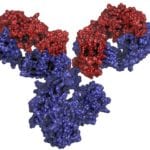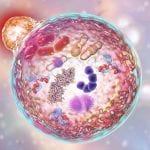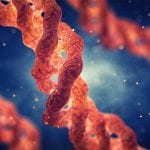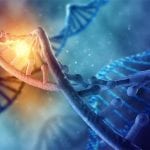Categories
Antibodies
A comprehensive range of monoclonal, polyclonal and secondary antibodies
Biorepository
High quality human and animal biospecimens
Kits & Assays
For the study of apoptosis, DNA damage, oxidative stress, angiogenesis, enzyme activity an...
Proteins & Peptides
An extensive range of high quality human and animal protein products
Featured Research
Gut bacteria Akkermansia muciniphila exacerbates food allergy in fibre-deprived mice
- Dr. Mahesh S. Desai and colleagues from the Department of Infection and Immunity at Luxembourg Institute of Health published a paper revealing that depriving mice of dietary fiber alters the gut microbiome, leading to exacerbated allergic reaction to food allergens.
- The alteration in the gut microbiome caused an increase in the mucin-degrading bacterium Akkermansia muciniphila. This was found to be associated with intestinal barrier dysfunction, increased expression of type 1 and 2 cytokines, and IgE-coated commensals in the colon, resulting in an exacerbated allergic reaction to food allergens.
- The researchers used mouse anti-ovalbumin IgE monoclonal antibody and mouse anti-ovalbumin IgG1 monoclonal antibody from AMSBIO to conduct allergen-specific ELISA assays. This technique enabled them to quantify the levels of allergen-specific IgE and IgG1 antibodies present in serum samples.
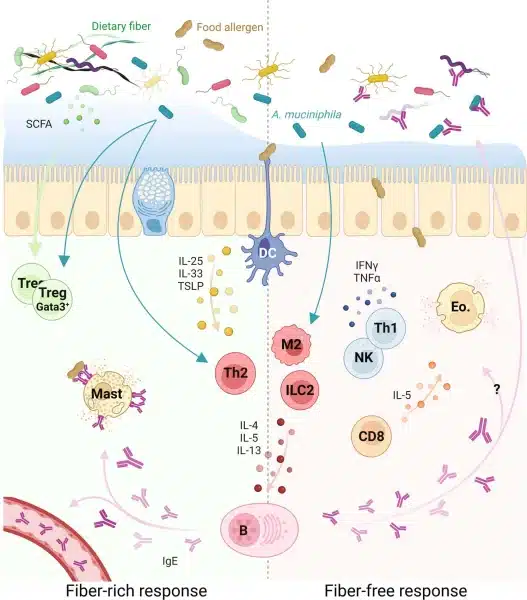
Citations
Akkermansia muciniphila exacerbates food allergy in fibre-deprived mice
Parrish, A. et al., (2023). Nature Microbiology, 8(10), 1863–1879.

